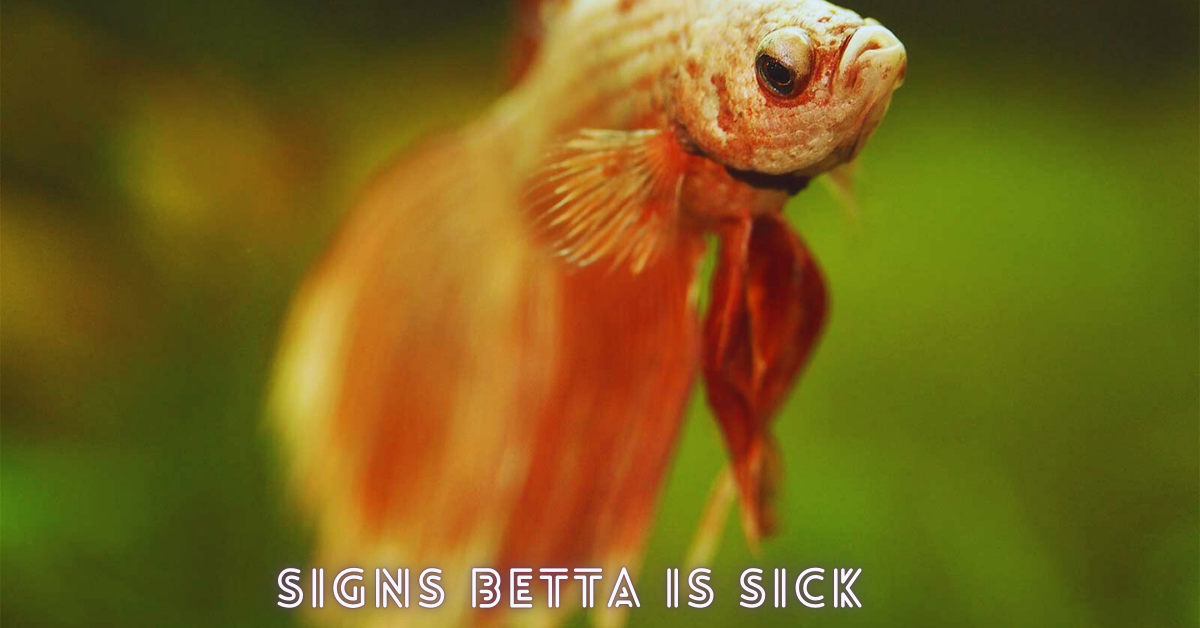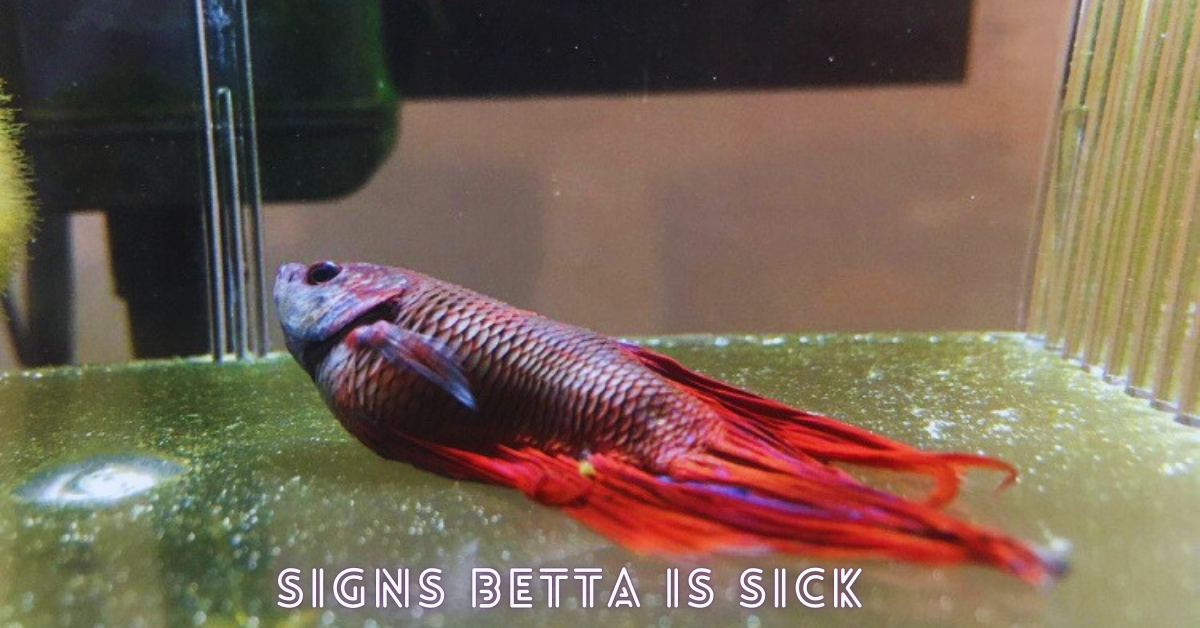Betta fish, known for their vibrant colors and flowing fins, are popular pets due to their beauty and relatively simple care requirements. However, even with the best care, Betta fish can sometimes fall ill. Recognizing the signs Betta is sick early is crucial for effective treatment and ensuring the health and longevity of your Betta. This guide provides detailed information on how to identify when your Betta might be sick, covering various symptoms and conditions.
Changes in Coloration
One of the first indicators that something may be wrong with your Betta fish is a noticeable change in coloration. Healthy Bettas exhibit bright, vibrant colors, but if you observe dullness, fading, or unusual spots and streaks, it could be a sign that Betta is sick. Changes in coloration may indicate stress, poor water quality, or underlying health issues such as parasitic infections or diseases.
Loss of Appetite
A sudden loss of appetite or refusal to eat is a common symptom in sick Bettas. If your Betta fish consistently ignores its food for more than a day or two, it may be suffering from a variety of conditions, including digestive problems, stress, or internal parasites. Monitoring your Betta’s eating habits is crucial to identifying the signs Betta is sick.
Erratic Swimming Behavior
Healthy Bettas typically exhibit smooth, graceful swimming patterns. If you notice your Betta swimming erratically, such as darting around the tank, crashing into objects, or struggling to maintain balance, it could be a sign that your Betta is sick. Erratic swimming can be caused by issues such as fin rot, parasites, or water quality problems.
Labored Breathing
Betta fish breathe air from the surface using their labyrinth organ, but labored or rapid breathing can be a red flag. If your Betta is gasping for air at the surface or showing signs of labored breathing, it may be experiencing respiratory issues. This could be due to poor water quality, gill disease, or oxygen deprivation, all of which are signs Betta is sick.
Clamped Fins
Clamped fins, where the fish’s fins are held close to its body instead of being spread out, is a common sign of stress or illness. This condition can be caused by a range of factors, including poor water quality, infections, or physical injury. Observing your Betta’s fin position is essential for spotting the signs Betta is sick.
Visible Lesions or Sores
Lesions, sores, or unusual growths on the skin, fins, or gills of your Betta fish are serious signs of illness. These abnormalities can be indicative of bacterial infections, fungal infections, or parasitic infestations. Examining your Betta closely for any visible changes can help in identifying the signs Betta is sick and seeking appropriate treatment.
Abnormal Feces
The appearance of your Betta’s feces can provide insight into its health. Abnormal feces, such as white, stringy, or discolored droppings, can signal digestive problems or internal parasites. Consistently observing your Betta’s waste is important for recognizing the signs Betta is sick.
Swollen Abdomen
A swollen abdomen, or “bloated” appearance, is another concerning symptom. This could be a sign of internal issues such as constipation, fluid retention, or more severe conditions like dropsy. If your Betta’s abdomen appears significantly larger than usual, it’s important to investigate further as it may be one of the signs Betta is sick.
Fin Rot
Fin rot is a common disease in Betta fish characterized by the gradual deterioration of the fins and tail. Signs of fin rot include frayed, ragged edges of the fins and a darkening of the fin tips. This condition is often caused by bacterial infections and can be exacerbated by poor water quality. Observing these symptoms is crucial for recognizing the signs Betta is sick.
White Spots or Cotton-like Growths
White spots on the body, fins, or gills, or cotton-like growths, are signs of common parasitic or fungal infections such as ich or cottonmouth disease. These symptoms can be alarming and typically require prompt treatment to prevent further health issues. Identifying these signs is crucial in determining if your Betta is sick.
Lethargy or Inactivity
A Betta fish that becomes unusually lethargic or inactive may be suffering from an illness. Healthy Bettas are generally active and curious, so a noticeable decrease in activity can be a sign of stress, illness, or environmental issues. Recognizing this lack of activity is important for identifying the signs Betta is sick.
Gasping at the Surface
If your Betta is frequently gasping at the surface of the water, it may be struggling to get enough oxygen. This could be due to poor water quality, high ammonia levels, or a malfunctioning filter. Ensuring proper aeration and water quality is essential for your Betta’s health and can help in recognizing the signs Betta is sick.
Abnormal Swimming Patterns
Unusual swimming patterns, such as floating at the surface or sinking to the bottom, can indicate various health issues. Bettas should swim normally and be able to maintain their position in the water column. Changes in swimming behavior may be linked to buoyancy issues or internal problems, which are key signs Betta is sick.
Presence of External Parasites
External parasites, such as tiny white or black spots, can be seen on the skin or gills of a Betta. These parasites can cause significant discomfort and health problems for your fish. Identifying and treating external parasites promptly is crucial to prevent further complications and to recognize the signs Betta is sick.
Excessive Scratching or Rubbing
If your Betta is seen scratching or rubbing against objects in the tank, it may be experiencing skin irritation or parasitic infections. This behavior, known as “flashing,” can be a sign of external parasites or other skin issues that require attention. Recognizing this behavior is important for identifying the signs Betta is sick.
FAQ’s
1. How can I tell if my Betta fish is sick?
Look for changes in behavior, appearance, and swimming patterns. Common signs include changes in coloration, loss of appetite, erratic swimming behavior, labored breathing, and clamped fins. Observing these symptoms can help you identify if your Betta is sick.
2. What does it mean if my Betta’s fins are clamped?
Clamped fins, where the Betta’s fins are held close to its body, often indicate stress or illness. This could be due to poor water quality, infections, or physical injury. Monitoring and addressing potential causes can help resolve this issue.
3. Why is my Betta fish gasping at the surface of the water?
Frequent gasping at the water’s surface may signal a lack of oxygen or poor water quality. Ensure proper aeration and check water parameters to improve oxygen levels and overall water conditions.
4. What should I do if my Betta fish is not eating?
A loss of appetite in Betta fish can indicate health issues such as digestive problems, stress, or parasites. Observe for other symptoms and consider checking water quality and consulting a veterinarian if the issue persists.
5. How can I recognize fin rot in my Betta fish?
Signs of fin rot include frayed, ragged edges of the fins and a darkening of the fin tips. This condition is often caused by bacterial infections and poor water quality. Regular water changes and appropriate medication can help treat fin rot.
Conclusion
Recognizing the signs Betta is sick is essential for maintaining their health and well-being. By being attentive to changes in coloration, behavior, appetite, and other physical symptoms, you can take prompt action to address potential health issues. Regular monitoring, maintaining optimal water quality, and providing a stress-free environment are key to ensuring that your Betta remains vibrant and healthy. If you observe any of these signs Betta is sick, it’s advisable to consult with an aquarium specialist or veterinarian to determine the best course of action for treatment.
Read More: Freefly Apparel: Revolutionizing Activewear with Style and Function







